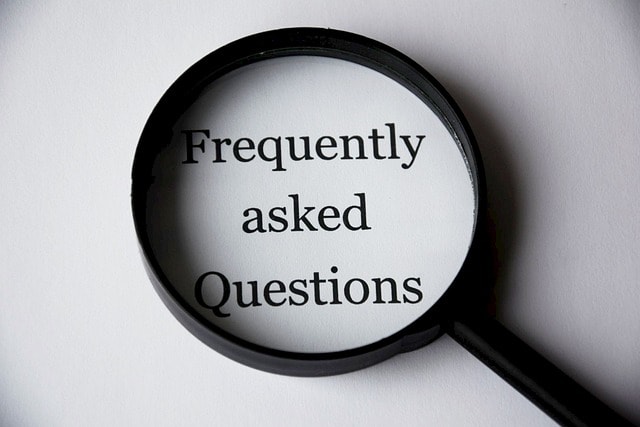What is a Slush Fund?
A slush fund in the world of small business would be a misnomer. In practice, the term has a very negative connotation, implying secret slush funds or other devious uses of money. If done right, a slush fund can be an intentional financial strategy for your business.
A slush fund refers to a reserve of money set aside for discretionary spending or unexpected expenses. Often misunderstood, slush funds have a negative connotation due to their association with secrecy and unethical practices. However, when applied correctly in small businesses, they can be an essential financial cushion.
A small business slush fund can act as an emergency savings account, providing critical support during periods of job loss, unexpected costs, or cash flow challenges. Business owners can handle unforeseen expenses without derailing their financial stability by maintaining a personal slush fund or business slush fund.
History of Slush Funds
The term slush fund originates from maritime history. Sailors would use leftover fat, referred to as slush, from boiled meat to sell and create a small pool of discretionary money. Over time, the term evolved to describe money set aside for purposes that are not always disclosed, often raising suspicions of misuse.
While the political arena and government agencies have contributed to its controversial reputation, the concept itself is neutral and can be applied ethically. Establishing a slush fund separate from an emergency fund supports ventures that may not be critical but enhance business quality, such as travel or team events. When managed ethically, a slush fund can contribute to a business’s financial stability by providing a reserve for non-critical but beneficial expenses.
Types of Slush Funds
There are various types of slush funds, each serving a distinct purpose. Here are some of the most common types:
- Personal Slush Fund: A personal slush fund is a pool of money set aside by an individual for discretionary spending. This fund can be used for fun purchases, such as concert tickets, a weekend getaway, or other non-essential items. By maintaining a personal slush fund, individuals can enjoy their wants without overspending or dipping into their essential savings.
- Business Slush Fund: A business slush fund is a reserve of money set aside by a company for miscellaneous and discretionary expenses. This fund can cover costs such as client entertainment, employee bonuses, or other business-related expenses that may not be part of the regular budget. Having a business slush fund allows companies to handle unexpected opportunities or minor emergencies without disrupting their primary financial plans.
- Government Slush Fund: A government slush fund is a pool of money set aside by a government agency for discretionary spending. These funds can be used for various purposes, such as funding community projects, providing financial assistance to individuals or businesses, or other initiatives that require flexible funding. While these funds can be beneficial, they must be managed transparently to avoid misuse.
- Political Slush Fund: A political slush fund is a reserve of money a political party or candidate sets aside for discretionary spending. This fund can be used for campaign expenses, lobbying efforts, or other political activities. Due to potential misuse, political slush funds are often scrutinized to ensure they are used ethically and legally.
Are Slush Funds legal?
Slush funds are perfectly legal when used for legitimate purposes and properly accounted for. The negative perception stems from their misuse in illegal activities, such as bribery, fraud, or funding preferential treatment.
The key for small businesses is financial transparency and accurate accounting. Funds raised secretly or spent without clear documentation can lead to legal and financial risks. As long as the money is allocated for lawful activities, such as paying unexpected bills or providing a rainy-day reserve, slush funds can be a valuable tool.
How do I start a Small Business Slush Fund?
Starting a small business slush fund is straightforward. Here are the steps to establish one:
- Assess Your Financial Needs: Effective financial planning involves evaluating your business’s expenses and identifying areas where an emergency fund could provide stability.
- Open a Separate Checking Account: Keep your slush fund separate from your primary business account to ensure clarity when tracking transactions.
- Determine Your Target Amount: Set a realistic goal of three to six months of essential expenses based on your business size and risk exposure.
- Allocate Proceeds Regularly: Set aside a portion of your income or profits into the fund consistently.
- Monitor and Adjust: Regularly review your fund to ensure it aligns with your business’s needs and update your contributions accordingly.
What are the benefits of a Small Business Slush Fund?
A small business slush fund provides numerous advantages. It offers financial flexibility, allowing businesses to navigate unexpected challenges without relying on credit or loans.
This reserve can cover unplanned expenses, such as equipment repairs, sudden supply costs, or temporary dips in revenue. With a financial cushion, small business owners can avoid disruptions to operations and maintain peace of mind. A slush fund can also act as a savings mechanism, fostering disciplined financial habits and contributing to long-term business stability.
What are the drawbacks of a Small Business Slush Fund?
Despite its benefits, a small business slush fund has potential drawbacks. Allocating money to a slush fund may divert resources from other critical business areas, such as marketing, hiring, or expansion.
Poor management of the fund could lead to wasted or misused money, particularly if clear guidelines and financial discipline are not established. Additionally, maintaining a fund that is too large could mean missing opportunities for higher returns through investments or growth initiatives. Balancing the fund’s size with business priorities is essential to avoid these pitfalls.
Small Business Slush Fund Pros & Cons
Pros:
- Provides a financial cushion for unexpected expenses.
- Enhances financial stability and operational continuity.
- Promotes disciplined saving habits.
- Enhances financial security by providing a reserve for unexpected expenses.
Cons:
- May divert funds from other essential business needs.
- Risk of misuse or improper management.
- Opportunity cost of tying up money in a low-return reserve.
- Negative connotations associated with slush funds.
Frequently Asked Questions
Here are the most common questions about small business slush funds.
Why are Slush Funds considered nefarious?
Slush funds are often seen as nefarious due to their association with secrecy and unethical practices. These funds have been used in the political arena for bribery, influence peddling, or other illegal activities.
This misuse has tainted the term, causing many to view slush funds with suspicion. However, transparency and proper accounting can mitigate these concerns and establish the fund’s financial integrity in a small business context.
Slush Funds vs. Emergency Funds
While slush funds and emergency funds are savings accounts, they serve different purposes and have distinct characteristics. Here are some key differences:
- Purpose: A slush fund is typically used for discretionary spending, such as non-essential purchases or minor business expenses. In contrast, an emergency fund is reserved for unexpected expenses that are critical, such as job loss, medical bills, or car repairs. The primary goal of an emergency fund is to provide financial security during unforeseen crises.
- Amount: The amount in a slush fund can vary widely depending on individual or business preferences and needs. There is no set guideline for how much should be in a slush fund. On the other hand, an emergency fund is generally recommended to be three to six months’ worth of living expenses. This ensures enough money to cover essential costs during a prolonged period of financial instability.
- Accessibility: A slush fund is often kept in a readily accessible account, allowing for quick and easy withdrawals when needed. This accessibility supports its use for discretionary spending. Conversely, an emergency fund is typically kept in a separate, easily accessible savings account. It is not meant to be touched unless a true emergency arises, and this separation helps prevent impulsive spending.
- Risk: A slush fund is more likely to be spent impulsively since it is intended for non-essential expenses. Without proper discipline, the money in a slush fund can be depleted quickly. In contrast, an emergency fund is used only in times of need, reducing the risk of impulsive spending and ensuring the money is available when necessary.
How are Slush Funds recorded in Business Accounting?
In business accounting, slush funds should be recorded as part of a company’s reserves or savings accounts. They must be properly accounted for with clear documentation of transactions, including the designated purpose.
Using a separate checking account simplifies tracking and ensures financial accountability. Detailed records are crucial to avoid any perception of mismanagement or impropriety.
What are the alternatives to Slush Funds?
For small businesses seeking alternatives to slush funds, several options are available:
- Emergency Savings Account: Similar to a slush fund but often tied to a high-yield savings account for better returns.
- Line of Credit: Provides flexible access to funds for unexpected expenses, with repayment terms suited to cash flow.
- Insurance Policies: Coverage for specific risks, such as business interruption or equipment breakdown.
- Retained Earnings: Keeping a portion of profits within the business for reinvestment or emergencies.
- Cash Flow Management Tools: Software solutions that optimize cash flow to reduce the need for separate reserves.
By exploring these options, small businesses can find the financial safety net that best suits their needs while maintaining financial resilience and legality.
Small Business Loans
Companies experiencing a cash flow crunch or those needing significant financial support for large-scale projects or goals might consider small business financing. You may be interested in one of the following small business loans:
- Bad credit business loan.
- Business loans for women.
- Business term loans.
- Equipment financing.
- Invoice factoring.
- Merchant cash advance.
- Revenue-based business loans.
- SBA loans.
- Working capital loans.
- ERC loans.
What is a Small Business Slush Fund – Final Thoughts
It’s no secret that navigating the world of small business finance can be intimidating. Slush funds are handy because they provide flexibility and quick access to cash. They can be valuable tools for addressing unexpected costs or capturing emergent opportunities.
However, they also carry serious risks and can raise major red flags if mismanaged, highlighting the importance of financial preparedness. Knowing the law and keeping good records can prevent problems before they start. To be even safer, consider alternatives such as emergency savings or a business line of credit. Each option has its own advantages and disadvantages.
Contact us if you have more questions about business financing or to apply for a small business loan. Our alternative funding experts can help you find the best small business loan for your needs.
















